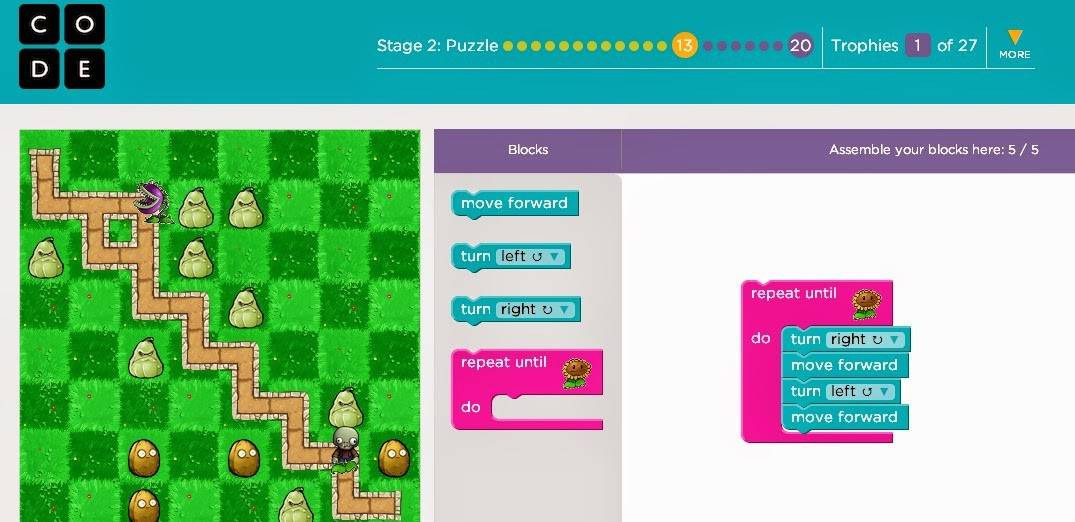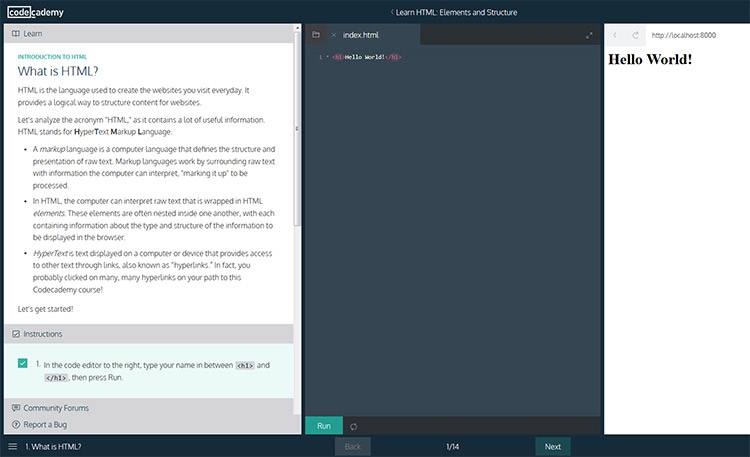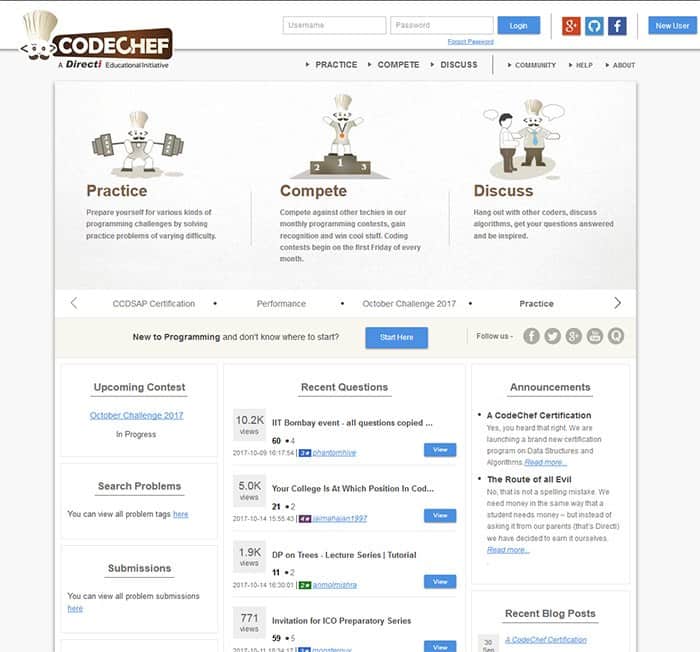There are six people whose career is based on information technologies among top 20 world’s wealthiest persons. Four of them are among the top 10 world’s billionaires. It means that not only do IT people have good chances to get ridiculously rich, but also that the IT industry is blooming and booming.
With enough skills, you can be sure of making a decent steady income even if you live in a third-world country. If you are lucky to have an attention-worthy startup idea, you may hit a multi-billion jackpot just like Mark Zuckerberg did.
The first step you need to take for a successful IT career is to learn how to write or understand computer programs. With so many encouraging reasons to pursue a career in programming, you'll discover that learning to code just requires motivation and the right resources to help you succeed.
The Benefits of Learning Programming Skills

Programming used to be akin to rocket science not so long ago. Only the brightest could handle it. Moreover, expensive and cumbersome equipment made it possible for just a relatively small group of people to learn to program.
Luckily, today’s high-level programming languages have simplified coding. Advanced microprocessors, cheaper computers, and the abundance of books and courses have allowed everyone to learn and practice programming skills.
The demand for programmers is insane as information technologies penetrate deeper into our life. A lot of electronic devices are programmed to serve us in every sphere from entertainment to healthcare and national defense.
The age of the Internet of Things is near. Even such mundane things as toothbrushes might get microchips to process a program allowing them to communicate with our smartphones and other devices for a better experience in every aspect of our lives. Therefore the IT industry is unlikely to decline in the foreseeable future.
Increasing integration of everyday life with electronic devices is why many people see the evolving information technology landscape as an opportunity to succeed. And knowing how to program computers can benefit people big time.
Here are the benefits of learning programming skills, along with how you can use those skills to enjoy satisfaction in your career and personal life:
1. Change the World
Computer science has changed the way we work and communicate. It has eliminated borders and distances between people. Thanks to programmers, a thing as small as a smartphone can offer countless opportunities for entertainment, education, communication, and shopping.
Computer science never stops to surprise us with groundbreaking technologies that are about to revolutionize our way of life. The newest, most promising developments include 3D printing of human organs, self-driving cars and trucks, space taxis, face-detecting systems, and all kinds of robots.
It feels incredibly good to turn code into something useful. Lots of people choose software development as their career to contribute to digital solutions that will improve lives of billions of people across the globe. No doubt, taking part in the IT developments and literally creating the future inspires and makes programmers feel complete and valued.
Being able to start your own app or tech idea may not have a global impact, but it will certainly change your own life. Wielding the power of computer programming can change the world around you by filling your life with the purpose, motivation, and excitement any startup founder might feel.
2. Have a Stable Job Anywhere in the World

The demand for software and web developers will only increase as IT innovations continue to have an impact on every sphere of our life. A lot of new and existing companies will need websites to compete with online retailers. Industries will require even more automation and precision. Becoming a good programmer seems to be a great career as your services will always be in demand and appreciated.
High demand for web and software developers creates many jobs even in developing countries. Countries like Ukraine and India became outsourcing destinations where international tech startups hire remote workforce for their web and software development needs.
Even though developers have much lower salaries in such countries compared to their first world colleagues, being a programmer is a dream job for them because a cheaper cost of living allows them to thrive even with relatively modest salaries. The global demand for developers ensures stable profits even in countries with struggling economies.
Learning how to code proved to be a way out for many individuals from all over the world who needed a career change. You can find stories of people who could barely pay their bills, which made them start to learn programming in their free time for a better chance of getting a decent job.
3. Enhance Industries You Care for
Computers and information technologies are part of healthcare, agriculture, education—you name it. If you want to enhance any industry, the first thing you could do is to introduce information technologies into its processes. Mastering data science and informatics can help you automate things, make operations faster, more precise, and less labour intensive in almost any industry.
Being passionate about an industry usually means knowing the industry’s problems and challenges. Information technologies were designed to solve problems. So programming skills give you the power to help people better cope with issues they face in any sector.
Most people find it very satisfying to be able to solve issues in an industry they care about. For example, someone who cares about the environment can make a difference in the world by designing something as basic as a website for an environmental NGO or something as complicated as a software platform to help innovate, automate, and streamline the entire environmental movement.
4. Save Money As an Entrepreneur
Being able to write and interpret computer programs can be a cost-saving skill for many tech startup founders. The programming skill can be beneficial for entrepreneurs as they can do the programming job without hiring others to do it.
Even if they decide to hire help, they will be able to assess developers’ qualifications, recruit the best workforce, facilitate better conversations with hired developers, and effectively monitor and adjust their work on the project.
Knowing how to code can help entrepreneurs avoid troubles and failures that may cost them their business. Startup founders who can write or at least understand code can assess qualification of programmers they hire for the project and thus recruit the most qualified workforce to launch their ventures. They can detect possible troubles early enough to avoid them, or change the strategy or pivot, if need be.
5. Have Fun Doing Work You Actually Enjoy

It’s fascinating to be able to turn code into a functioning digital product. Many people dream of becoming programmers for the fun of being a kind of a “wizard” who can use a bunch of letters, numbers, and symbols to create video games or films, control robots, or send messages to people anywhere in the world.
There are not many things that are as physiologically satisfying as a fun job. A job you enjoy contributes to your happy life a great deal. Moreover, many IT companies are willing to go an extra mile to make their programmers feel happy about their jobs.
While the coding itself can be exciting, many companies are enticing software developers by providing a dynamic and fun corporate culture, as well as great perks. Following good examples of tech giants such as Google and Facebook, even small web and software development companies are offering perks to their employees as well as creating an outstanding corporate culture.
Pretty often, such perks ranging from free food to premium healthcare make working in the IT industry one of the most positive and fun experiences one can get from a corporate job. Tech companies are doing their best to attract as many skilled programmers as possible with their awesome corporate culture. This fun and awesomeness gives people another impetus to learn coding.
What You Need to Learn in Order to Code
If you are serious about learning to write computer programs at the expert level, be prepared to spend 10000 hours to acquire the necessary skill. However, some people claim one only needs 20 hours of practice to learn enough to start self-correcting and perfecting one’s skills.
Regardless, there are plenty of cases proving that today’s programming is not rocket science. Many self-taught programmers have managed to land jobs even in major companies or launch their startups within a couple of years after starting to learn to code.
If you prefer a more guided approach to learning code, some tutors promise to teach you programming basics within 30 days through real-time workshops and coding bootcamps. This method can boost novice programmers’ growth and ability to learn advanced programming concepts on their own.
To be honest, though, programmers never stop learning things, mostly because the technology is advancing at an astonishing pace. Therefore, developers have to face new challenges and crack new problems to catch up with the progress. Programmers that desire to succeed should be prepared to refresh their knowledge regularly and monitor new trends and technologies in order to offer up-to-date skills in the market.
Motivation and Practice
It is pretty hard to learn any skill without motivation and practice. So you’d better have those two essential ingredients within your learning process.
The thrill of creation, passion for technology, and career opportunities can serve as strong motivation boosters when it comes to learning how to write computer programs.
Acquiring a technical skill like programming requires lots of practice. In fact, reading books and watching tutorials can be absolutely useless without making something on your own or collaborating with other developers on a project.
Some professional programmers confess that six months of working on real-life projects helped them learn more than an entire college course for programming. As a beginner, taking baby steps with writing code to solve simple problems will ease you into the world of computer programming thus paving a path towards a promising career.
Every top IT entrepreneur started learning to code by writing simple programs. Bill Gates wrote a tic-tac-toe game. DropBox creator Drew Houston made his first program ask what the user’s favorite color was and how old he/she was. Solving even the most humble problems at the beginning of their career allowed many successful developers to realize how empowering programming skills could be.
They say that starting to learn programming can be intimidating. The key to success is figuring out the logical part of solving problems with the computer code. Practice and determination will certainly help you get the hang of it over time.
Practical Resources to Learn Programming
Luckily, there are a plethora of resources people can make use of to learn how to code. Although computer science is a relatively young discipline, it lacks neither offline nor online resources for those wishing to learn any part of it.
Too many industries are looking for web and software developers, while too many people are willing to become a part of the IT community. That is why programming experts spare no efforts in writing books, creating tutorials, and interactive courses to meet the aspirations of wannabe developers and employers who constantly need qualified programmers to maintain or expand their businesses.
Major educational establishments like MIT and Harvard have even made their computer science lectures public for anyone in the world to learn from the best educators.
Many of today’s educational resources are specially designed to help newbie computer programmers deal with typical challenges they may face. However, the best resources have key common qualities that can help you succeed in your learning process. These resources do the following:
Make the learning process fun
Figuring out the logic part of programming might be not that easy at first. However, interactivity and gamification can help any individual get the basic understanding of coding and smoothly move to less boring and more practical stuff.
Websites like CodeCademy offer interactive tutorials with a built-in interpreter. A student writes small chunks of code and immediately sees how it is interpreted by the browser. In the course of a tutorial, beginner programmers can apply concepts in real-world examples and small projects, like building a web page, calculating the restaurant tip, etc.

Code.org offers interactive and visually enhanced programming activities that are likely to be appealing to both children and adults. New coders might also start out programming small games. Such activities are entertaining, and they enable students to figure out how to use code to solve problems and make the computer do what they want it to do.
Playing computer games is a favorite pastime for many young programmers. Learning to code by building a game stimulates their interest and memory. It is a well-known fact that people remember and understand things better when learning them with positive emotions.
Game publishers such as Tomorrow Corporation create entire games to help people better understand programming concepts. Human Resource Machine is one game that makes learning to program as fun as can be.
Help you apply your knowledge
Practice is the driving force of education. It lets you avoid one of the most frustrating things about learning the basics of any discipline—the unawareness of practical use of what you learn. Many people quit learning how to code because things didn’t make sense for them.
One can read tons of books or watch tutorials teaching how to write code, but actually writing a computer program and immediately seeing what it does in a real-life project is much more motivating and can trigger even newbies’ skills.

CodeCademy’s interactive tutorials do a great job in helping students apply their knowledge in real time. The platform divides courses in small easily digestible lessons and asks to use small chunks of knowledge learned in each lesson to build a web page or solve a practical problem. CodeCademy tutorials incorporate a code interpreter so that students can see the result of their programming immediately.
The Free Code Camp invites its students to help non-profits by contributing to their projects. It is indeed a great way to solidify your programming skills by using them to build real-life solutions. Taking part in such projects will help developers figure out how programming works, how to fix issues and how code is applied to run desktop or web-based applications.
Inspire you to push forward
Inspiration is the driving force for learning. We get inspired by the most successful and talented people in the industry we want to belong to. Naturally we want to learn from them.
One thing in common for many famous computer scientists, programmers, and IT entrepreneurs such as Robert Noyce, Dennis Ritchie, Mark Zuckerberg, and Bill Gates is that they studied in Ivy League universities. Not many people are lucky enough to learn computer science in top ranked universities such as MIT or Harvard. However, thanks to the World Wide Web, we can watch lectures from those universities online and get inspired by the atmosphere, legacy, and expertise of the lecturers.

If you are starting your career in computer programming, there is nothing more inspiring and helpful that learning from experienced educators. So go to the Internet and find MIT lectures on computer science as well as legendary Harvard’s CS50 course to get started with programming.
Show you what professional programmers do
One of the most critical programming skills is the ability to read and understand the code written by others. Many resources allow you to see how expert programmers solve problems, ask questions to the programming community, and collaborate and compete with other programmers. These are resources that can help you learn and utilize best programming practices.
Seeing and comprehending how more experienced developers digitize their ideas and make computers do useful things is like reading a cookbook with recipes you can use to recreate their dishes or create your own. In the majority of cases using other people’s code for your solutions should be OK. What is of paramount importance is your ability to analyze the code, understand it, and tweak it to serve your solution.

There are websites that hold programming competitions. CodeChef is a website that offers practice contests and challenges where one can analyze solutions offered by developers from all over the world in different languages. It is a great way to understand how programmers can solve some real-life problems. Other similar sites are HackerRank and Hackerearth.
Online communities for programmers such as Stack Overflow can also be a great help for learning from experts. Such communities allow newbie programmers to see both the best practices and other people’s mistakes, helping them work through their own in turn.
Learn to Code, and You'll Go Far
There will be more than 1 million computer science related jobs in the U.S. alone in the 2020's. And it seems like the demand for qualified programming services will continue to exceed the supply of programmers in the near future.
It seems there is no industry functioning without computer assistance these days. Therefore professional programmers will continue to enjoy the benefits of decent salaries and appreciation of their trade.
Thanks to high-level programming languages, writing code has become much easier than before. So one does not need to be a genius to learn enough to get a programming job. The hardest part about learning how to program a computer is figuring out the logic behind solving problems with algorithms. One can do it by practicing, collaborating with more experienced programmers, and picking up tips from them.
There are plenty of free and paid resources available for learning how to code. Many of them were created and sponsored by programmers for programmers, built with novice programmers in mind. They are designed to help developers practice and apply new skills in real-life projects. One only needs determination and desire to learn.
I hope my article will inspire wannabe developers to learn programming despite the many frustrations they might face. Because creating computer programs is creating the future. And we all need as many skilled programmers as possible for the best future of the world!
